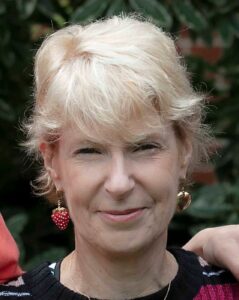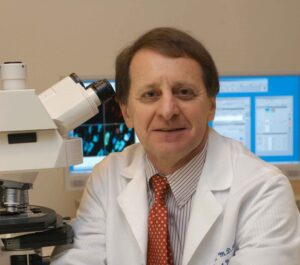The Society is delighted to announce the 2026 Prize Lecture recipients who will be featured at events throughout its 150th anniversary year.
- The Annual Review Prize Lecture: Professor Susan Wray, University of Liverpool (UK)
- The Bayliss-Starling Prize Lecture for Mid-Career Physiologists: Dr Samuel Barnes, Imperial College London (UK)
- The GL Brown Annual Public Prize Lecture: Professor Andrew Jones, University of Exeter (UK)
- The Hodgkin-Huxley-Katz International Prize Lecture: Professor Kristen Harris, University of Texas at Austin (USA)
- The Joan Mott Prize Lecture Celebrating Women Physiologists: Professor Louise Burke, Australian Catholic University (Australia)
- The Mabel Fitzgerald Prize for Diversity in Physiology: Professor Ming Lei, University of Oxford (UK)
- The Otto Hutter Teaching Prize and Lecture: Professor Derek Scott, University of Aberdeen (UK)
- The R Jean Banister Prize Lecture for Early-Career Physiologists: Dr Srikanth Ramaswamy, Newcastle University (UK)
- The Sharpey-Schafer Prize Lecture for Translational Physiologists: Professor Stephen Waxman, Yale School of Medicine (USA)
- The Widening Participation in Physiology Prize: Dr Simon Cork, Anglia Ruskin University (UK)
Annual Review Prize Lecture
The Annual Review Prize Lecture is The Society’s premier award. It recognises research that has a wide interest and impact.

About the recipient: Professor Susan Wray
Susan Wray is an emeritus professor at The University of Liverpool. She received her BSc in Physiology from University College London and continued there to undertake a PhD on connective tissue in the uterus. She was appointed to the faculty of The University of Liverpool in 1990, where she has happily remained. She served as Head of Department of Physiology, Director of the Centre for Better Births, and was the university’s lead for equality and diversity.
She has researched the mechanisms regulating smooth muscle contraction, with a particular interest in the myometrium. A major focus has been the control of intracellular pH and calcium. As well as studying the basic mechanisms, she has investigated how abnormalities of pH and calcium are involved in abnormal labour in women. By integrating basic science discoveries with clinical research her work has led to strategies to improve labour outcomes. She was the founding Editor-in-Chief (EiC) of Physiological Reports and is EiC of Current Research in Physiology. She has been elected to honorary Fellowships of the Royal College of Obstetricians & Gynaecologists and The Physiological Society, is a Fellow of the Academy of Medical Sciences, and a member of the Academia Europaea. She has been President of the Federation of European Physiological Societies. She is proud to currently be the President of the International Union of Physiological Societies. She is also honoured to be awarded the society’s Annual Review Prize Lecture and be part of its 150th birthday celebrations.
The Bayliss-Starling Prize Lecture for Mid-Career Physiologists
This award celebrates a discreet package of work by a mid-career physiologist that has made a significant impact on physiological understanding.

About the recipient: Dr Samuel Barnes
Dr Barnes is an Associate Professor of Neural Plasticity and Deputy Director of the UK Dementia Research Institute (UK DRI) at Imperial College London. His group is interested in how brain reorganisation (termed plasticity) may play a role in neurological disease. Specifically, he investigates how dysregulated plasticity contributes to changes in cognitive function during ageing and early-stages of neurodegeneration. His team uses this information to test if promoting plasticity can improve brain health.
His group uses a range of techniques including electrophysiology and calcium imaging to measure neuronal plasticity in the intact brain. These approaches are combined with molecular measures such as spatial proteomics and transcriptomics to probe the underlying mechanisms supporting plasticity and how they are impacted by ageing and neurodegeneration. Finally, his team uses behavioural testing, in vivo pharmacology and non-invasive brain-stimulation to measure the consequences of dysfunctional plasticity for brain function.
After graduating from Oxford University in 2006, he was awarded an MRC funded Ph.D. studentship (King’s College London) to investigate cortical synaptic connection loss. In this position he used electrophysiology to show that reduced sensory experience drives weakening, temporally imprecise neurotransmission and loss of synaptic connections in rodents. His postdoctoral work (University College London) used imaging, to investigate how plasticity regulates neuronal activity in adult cortex. This work led to the discovery of local homeostatic plasticity in small neuronal-subnetworks and dendritic branches. In 2015, Barnes won the Edmond J. Safra Research Fellowship and moved to Imperial, to investigate plasticity supporting multisensory experience in adult cortex. He also became interested in how plasticity contributes to amyloid-related neurological disease using human/murine xenografts. In 2018, he was awarded a UKDRI Fellowship and Lectureship at Imperial, to study micro-circuit homeostasis in early-stage Alzheimer’s disease (AD). In 2022, he was promoted to Associate Professor and successfully renewed his UKDRI funding until 2030. In April 2024, he was appointed Deputy Director of the UKDRI Centre at Imperial.
His group currently studies how homeostatic plasticity mechanisms operating at the synapse regulate neural firing levels to prevent prolonged periods of hyper- or hypo-activity. His team test the hypothesis that such synaptic homeostasis is neuroprotective but may fail in ageing and the early stages of neurodegeneration leading to pathophysiological neural-circuit activity which can negatively impact cognition. The group’s most recent paper identified failing homeostatic plasticity mechanisms in the ageing brain, which if targeted with pharmacology, could boost cognition in older animals.
The GL Brown Annual Public Prize Lecture
This annual public lecture is to stimulate an interest in physiology. The audience for this lecture is primarily schools and the wider public, as well as students and staff with an interest in physiology.

About the recipient: Professor Andrew Jones
Andrew M Jones PhD DSc FTPS is Professor of Applied Physiology and Assistant Deputy Vice-Chancellor for Research Quality and Impact at the University of Exeter. Prof Jones is internationally recognized for his expertise in the following areas: 1) control of, and limitations to, human skeletal muscle oxidative metabolism; 2) causes of exercise intolerance in health and disease; 3) respiratory physiology, particularly the kinetics of pulmonary gas exchange during exercise; and 4) sports performance physiology and nutrition. Prof Jones has published >380 peer-reviewed scientific articles with >45K citations, h-index of 113 and i10 of 327 (Google Scholar). The Jones lab uses a variety of invasive and non-invasive experimental techniques to explore the physiological responses to exercise, causes of fatigue and interventions to enhance endurance performance. Jones is Editor-in-Chief of the American College of Sports Medicine’s flagship journal, Medicine & Science in Sports & Exercise and a member of the editorial boards of several other leading journals in the exercise sciences. Prof Jones has a keen interest in the translation of sports science research to aid elite sports performance, and has served as a consultant to UK Athletics, the English Institute of Sport and Nike Inc.
The Hodgkin-Huxley-Katz International Prize Lecture
This annual lecture is awarded to physiologists working outside the United Kingdom or Republic of Ireland. This lecture celebrates the international impact of the work of Alan Hodgkin, Andrew Huxley and Bernard Katz.

About the recipient: Professor Kristen Harris
Kristen Harris’s professional career started at Harvard Medical school where she rose to the rank of associate professor. She was then recruited as full Professor to Boston Univ. where she helped establish their graduate program in experimental and computational neuroscience. She then became a Georgia Research Alliance Eminent scholar to the Medical College of Georgia, and in 2006 joined the Center for Learning and Memory at the University of Texas at Austin. She is renowned for her work on synapse structure and function pioneering three-dimensional reconstruction from serial section electron microscopy. Her lab had developed novel tools sharing them and data (synapseweb.clm.utexas.edu) that are widely used resources. She is the recipient of Sloan Research Fellowship, Javits Merit Award, Brain Research Foundation Fellowship, and continuous funding for her lab, including her current lead as PI on the NSF NeuroNex grant to investigate synaptic weight with 26 international and national coPIs. She is known for innovative teaching and presentations at conferences worldwide. She was recently elected to the National Academy of Sciences.
The Joan Mott Prize Lecture Celebrating Women Physiologists
This annual lecture celebrates women in physiology whose work has demonstrated impact.

About the recipient: Professor Louise Burke
Louise Burke is a sports dietitian with 45 years of experience in the education and counselling of elite athletes. She worked at the Australian Institute of Sport for thirty years, first as Head of Sports Nutrition and then as Chief of Nutrition Strategy. She has attended 6 Summer Olympic Games with the Australian Olympic Team (1996-2012 and 2021). Louise was appointed as Chair in Sports Nutrition in the Mary MacKillop Institute of Health Research at Australian Catholic University in Melbourne in 2014 and took up this position in a full-time capacity in 2020.
Louise’s publications include over 400 papers in peer-reviewed journals and book chapters, and the authorship or editorship of several textbooks on sports nutrition. A bibliometric analysis from 2013 to 2023 mapped manuscripts about sport and nutrition, and reported the country, institution, and author with the most publications are the USA, University of California System, and Burke, Louise M.
Louise is a founding and Life Member of Sports Dietitians Australia, as well as a Life Member of Dietitians Australia and Professionals in Nutrition for Exercise and Sport. She is a Director of the IOC Diploma in Sports Nutrition. She was awarded a Medal of the Order of Australia in 2009 for her contribution to sports nutrition and a Doctor of Science (Honoris causa) from McMaster University, Hamilton, Canada. Louise practices what she preaches, having recently broken an Australian National Age record for the marathon.
The Mabel Fitzgerald Prize for Diversity in Physiology
This annual lecture celebrates excellence in physiological research from scientists from underrepresented backgrounds.

About the recipient: Professor Ming Lei
Ming Lei is Professor of Physiology and Pharmacology in the Department of Pharmacology at the University of Oxford. He is a renowned cardiac electrophysiologist and his research has pioneered in the physiological and pathophysiological regulatory mechanisms underlying electrical activity and calcium handling in cardiomyocytes. This integrates cutting edge approaches in genetic manipulation, electrophysiology, optogenetics, cellular, molecular and computational biology.
Ming Lei has made numerous important discoveries in cardiac physiology and pharmacology. He discovered the role of the voltage Na+ channels Nav1.1 and Nav1.5 in sinus node pacemaking and conduction disrupting traditional views of these functions. He thereby established mechanistic links between Nav1.5 mutation and sinus node disease. He revealed the critical role of the multi-function p21-activated kinase 1 (Pak1) as a signalling hub regulating cardiomyocyte excitation and homeostasis. This further established Pak1 as a novel therapeutic target, leading to the development of a novel class of therapeutic agents for hypertrophic heart disease. His more recent discovery of a previously unreported, Dbh⁺ catecholaminergic cardiomyocyte type prompted to paradigm shift in our view of cardiomyocyte functions. He also led the comprehensive 2018 modernisation of antiarrhythmic drug (AAD) classification replacing the long-standing Vaughan Williams system. Its international adoption in the 2025 European Heart Rhythm Association’s Clinical Consensus, reflects global recognition of its significant clinical impact. He has published ~170 publications in leading physiological, cardiovascular science and biological domains journals including The Journal of Physiology, Circulation, Circulation Research, Nature Biotechnology, Nature Chemical Engineering, Nature Communications, with an H-index of 50, with highlights in journal editorials or Faculty 1000 recommendations. He has delivered over 30 keynote and plenary talks at major UK and international conferences. He is senior or associate editor in numerous prestigious scientific journals. He has received 30 research grants from the Medical Research Council, British Heart Foundation, the Wellcome Trust and other funding bodies.
The Otto Hutter Teaching Prize and Lecture
This annual prize and lecture recognises excellence and originality in physiology teaching at undergraduate level. It celebrates the ground-breaking innovations and initiatives that mark a step change in education.

About the recipient: Professor Derek Scott
Professor Derek Scott is Chair of Physiology & Pharmacology Education and Education Lead for the Institute of Education for Healthcare & Medical Sciences at the University of Aberdeen. Derek began his career at Aberdeen as Wellcome Teaching Fellow in Biomedical Sciences and became increasingly involved in educational innovation. He was the first person on the scholarship career track ever to be promoted to Chair level at Aberdeen and the only person to win the Principal’s Teaching Excellence Award more than once, having won it 3 times.
Derek has previously served as Education & Teaching Theme Lead for the Society, served on various committees, and co-chaired the Society’s report into the contribution of physiology education and training to the UK economy. He also spoke on behalf of the Society at the Scottish Parliament about how physiology in Scotland contributes to achieving the Sustainable Development Goals. Derek was the international member of the group that developed the Physiology Learning Outcomes for the Human Anatomy & Physiology Society (HAPS).
Derek’s scholarship interests include use of infographics, case studies and simulation to teach physiology. His current research interests involve competency-based assessments in physiology, access to clinical physiology careers, and how we teach the physiology of dying. Derek is passionate about career progression for physiology educators and working with students as partners in scholarship work.
The R Jean Banister Prize Lecture for Early-Career Physiologists
This annual lecture is awarded to early career physiologists and is delivered in up to two locations across the UK and Ireland.

About the recipient: Dr Srikanth Ramaswamy
Dr. Srikanth Ramaswamy is a Marie Curie Fellow, a Lister Prize Fellow and an Assistant Professor in computational neuroscience at Newcastle University, where he directs the Neural Circuits Laboratory. He is also a Fulbright Scholar at MIT and a Theoretical Sciences Scholar at Okinawa Institute of Science and Technology. His research focuses on the role of neuromodulators in shaping cognition within biological neural networks and developing biologically informed neural network models for energy-efficient AI. He is a founding scientist of the Blue Brain Project at Ecole Polytechnique Federale De Lausanne (EPFL). He earned his PhD at the EPFL in computational neuroscience, where he developed data-driven modelling frameworks for biologically detailed digital models of neural networks. As a scientist of colour, Dr Ramaswamy is passionately committed to promoting diversity, equity, and inclusion and is a founding member of the ALBA network, where he leads efforts to advance DEI in neuroscience, including launching the ALBA diversity podcast series in late 2020, highlighting the stories of emerging neuroscientists from underrepresented backgrounds.
The Sharpey-Schafer Prize Lecture for Translational Physiologists
This annual lecture has a focus on the translatability of physiological research outside academia.

About the recipient: Professor Stephen Waxman
Stephen G. Waxman, MD, PhD, is the Bridget Flaherty Professor of Neurology, Neuroscience and Pharmacology at Yale University, where he served as Chairman of Neurology from 1986 until 2009. He founded Yale’s Neuroscience & Regeneration Research Center and has been its director since 1988. Prior to Yale, he held faculty positions at Harvard, MIT, and Stanford. As a student, he worked with J.Z. Young and then with Patrick Wall at UCL.
Dr Waxman’s research capitalizes on the “molecular revolution” to develop new therapies that restore function after nervous system injury. He has published more than 800 scientific papers.
Dr Waxman’s early papers in Science, PNAS and Nature defined the ion channel architecture of nerve fibers, and demonstrated its importance for axonal conduction. He discovered the sodium channel plasticity that supports recovery of impulse conduction in demyelinated axons, providing a basis for remissions in MS.
Dr Waxman has been a pioneer in explicating the roles of sodium channels in pain and his work has led to new therapies. Using molecular genetics, stem-cell models, computation methods and biophysics, he made a molecule-to-man translational leap from laboratory to humans that demonstrated the roles of sodium channels Nav1.7 and Nav1.8 in human pain. He led an international team that identified ion channel mutations as causes of pain in peripheral neuropathy. He has used atomic-level modeling to advance pharmacogenomics in a study, accompanied by a JAMA editorial stating “there are few examples in clinical medicine where molecular reasoning has been rewarded with comparable success”. He is now pinpointing “pain resilience” genes. New non-addictive pain medications, based largely on his work, are in or headed toward clinical trials, and the first has achieved FDA approval.
Waxman has served on multiple editorial boards including Brain, Journal of Physiology, Annals of Neurology, Trends in Molecular Medicine, and Nature Reviews Neurology. He is the Editor of The Neuroscientist. His trainees lead research teams throughout the world.
Dr Waxman is a member of the National Academy of Medicine, and served on the Board of Scientific Counselors of NINDS. His honors include the Dystel Prize and Wartenberg Award (Amer. Acad. of Neurology), the Middleton Award and Magnuson Award (Veterans Admin), and the Soriano Award (Amer. Neurol. Assn). He was honored with the British Physiological Society’s Annual Prize in 2009. Most recently, he received the Julius Axelrod Prize (Society for Neuroscience).
The Widening Participation in Physiology Prize Lecture
This annual lecture celebrates impactful work in increasing the number and diversity of people studying and conducting research in physiology.

About the recipient: Dr Simon Cork
Dr Simon Cork graduated from Durham University with a PhD in neurophysiology. His research focusses on the role of gut hormones in gut-brain communication and appetite regulation, and he regularly appears on national and international TV, radio and print media discussing research underpinning novel anti-obesity medications.
Dr Cork is currently lead for physiology, Phase 1 and admissions at Anglia Ruskin University (ARU) School of Medicine. In this role, he leads on delivery of the physiology curriculum to medical students, as well as leading the strategic direction of admissions policies on the medicine programme. In particular, his work has focussed on widening access to medicine for students from underrepresented backgrounds, including leading nationally on the introduction of T levels to medicine.
He sits on several national committees related to medicine admissions, including the National Medical Schools Widening Participation forum and Medical Schools Council Selection Alliance. As a board member and trustee of the UCAT Consortium, Dr Cork played a key role in initiating the formation of a national task and finish group focused on addressing inequalities in the use of the UCAT in medical school admissions. As one of a select group of experts on this panel, he contributes to the development of national guidelines aimed at supporting fairer and more inclusive selection practices.
